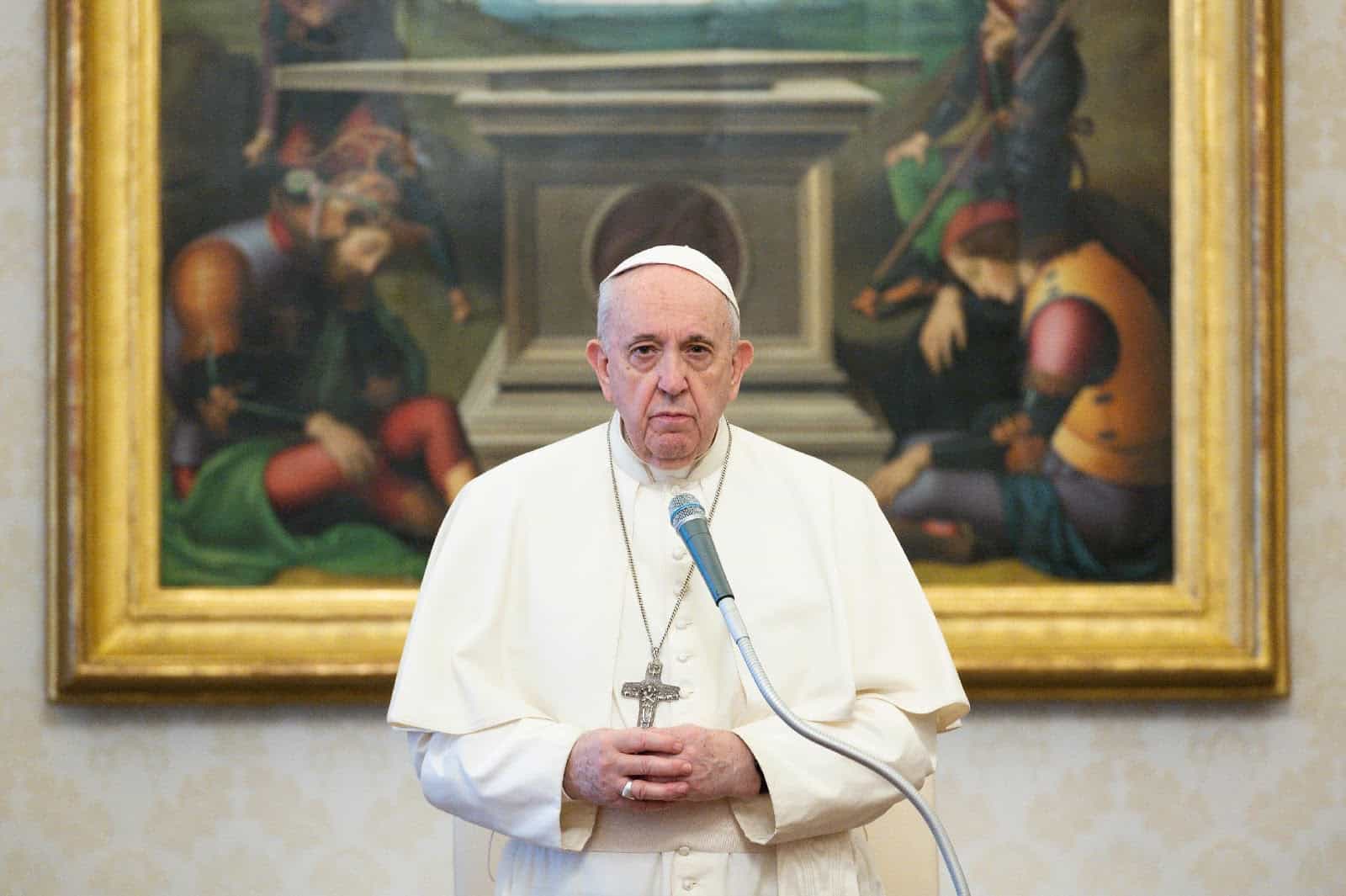The one percent who run major corporations doesn’t seem to be a virtuous lot. So, why would Pope Francis and the Vatican announce an alliance with some of the richest business leaders in the world?
The Council for Inclusive Capitalism announced last week that they were officially partnering with Pope Francis and the Vatican. The Council is a high-powered alliance of top CEOs and global leaders seeking to “make economies more inclusive and sustainable with a movement of bold, business-led actions that span the economic ecosystem.” Collectively, the members represent 200 million workers and over $2.1 trillion in market capitalization.
“Inclusive capitalism” is an updated market system that is “more sustainable, trusted, equitable, and inclusive” but that preserves the ability of capitalism to deliver wealth and prosperity. In order to change the system, individual corporations make “commitments” in four broad priority areas: People, Planet, Principles of Governance, and Prosperity.
Commitments range from Estée Lauder making it’s packaging more environmentally friendly to Mastercard “expanding annual spending with Black suppliers by more than 70%” to EY aiming “to positively impact 250 million lives by 2025 and 1 billion lives by 2030.”
The sleek website is peppered with snippets of corporate moral-speak that could have been taken from the vision statement of any 21st century conglomerate: “long-term value for all stakeholders,” “diversity and equality of opportunity for individuals,” and “strive to minimize negative impact,” for example.
But the Council has the blessing and moral authority of Pope Francis behind it and its members will meet annually with the pope and Cardinal Peter Turkson, prefect of the Dicastery for Promoting Integral Human Development.
Pope Francis, however, is well-known for his sharp critiques of global capitalism. He writes in Evangelii Gaudium:
“Today everything comes under the laws of competition and the survival of the fittest, where the powerful feed upon the powerless. As a consequence, masses of people find themselves excluded and marginalized: without work, without possibilities, without any means of escape.”
It may seem strange that this same pope is joining hands with “guardians” of inclusive capitalism such as the CEOs of Visa, Mastercard, Bank of America, BP, et al., but I suspect that the Holy Father may be employing a classic Jesuit tactic: “in their door and out our own”.
St. Ignatius wrote in a letter to Jesuits on mission, particularly in dealing with people of means:
In any conversation where we are trying to win a person over and ensnare him for the greater service of God our Lord, we should adopt the same procedure the enemy [the devil] uses with a good soul… The enemy enters through the other’s door and comes out his own… [W]e, [acting] for good, can praise a person or go along with him on some particular good point, passing over in silence any bad points he may have. Once we have won his love, we will better get what we want. Thus, we go in his door and come out our own.
Pope Francis may be entering the door of “inclusive capitalism” in hopes of leading the industry leaders out the door of economic justice according to the understanding of Catholic Social Teaching.
In this effort, the Holy Father has his work cut out for him.
One difficulty is that St. Ignatius’s advice was intended for interpersonal relations and may not work well between institutions. Corporations might just use the Vatican as moral cover, rather than opening up to genuine reform in decision-making processes. It’s unclear what kind of contact or input Pope Francis or the Vatican will have with the “Guardians” beyond annual meetings.
The values and commitments of the member organizations certainly represent good and noble aspirations, but for a work “under the moral guidance of His Holiness Pope Francis” there is a dearth of reference to his actual thoughts on economic life and its place in human flourishing. Rather, most of the Council’s standards come from the World Economic Forum (WEF) and the U.N. Sustainability Goals.
In his comments to the Council, the pope reminded the members that “authentic development cannot be restricted to economic growth alone but must foster the growth of each person and of the whole person… it involves a renewal, purification and strengthening of solid economic models based on our own personal conversion and generosity to those in need.”
In other words, a good life is about more than material prosperity. Living well entails conversion and sacrifice, not responding to ‘incentives’ and engineering ‘outcomes.’ For substantial systemic change, there needs to be a paradigm shift in capitalism, beyond what might skeptically be called “greenwashing” or window-dressing of exploitation.
Another challenge Francis is up against is the reality that business leaders are beholden to their own boards of directors and shareholders who might be noble and generous people, but who have a vested interest in maximizing shareholder value. What constitutes “value” is exactly what’s at stake, but this and other legitimate concerns about the very structures of capitalism do not appear anywhere in the Council’s vision.
For example, there is no mention of labor or labor unions in the articulation of the guiding principles, although the International Trade Union Confederation (ITUC) is involved. Catholic Social Teaching has a strong tradition in support of workers’ rights to organize which could be a point of challenge for some of the corporations involved.
With at least one foot in the door to the world of international commerce, Pope Francis has an opportunity to improve the system of global capitalism. He and Cardinal Turkson might be uniquely positioned to call the business tycoons and thought-leaders to a conversion from a profit-driven, individualistic, technocratic paradigm to a pursuit of the common good, subsidiarity, and solidarity. I hope and pray they can, little by little, draw these leaders to seek a true common good.


